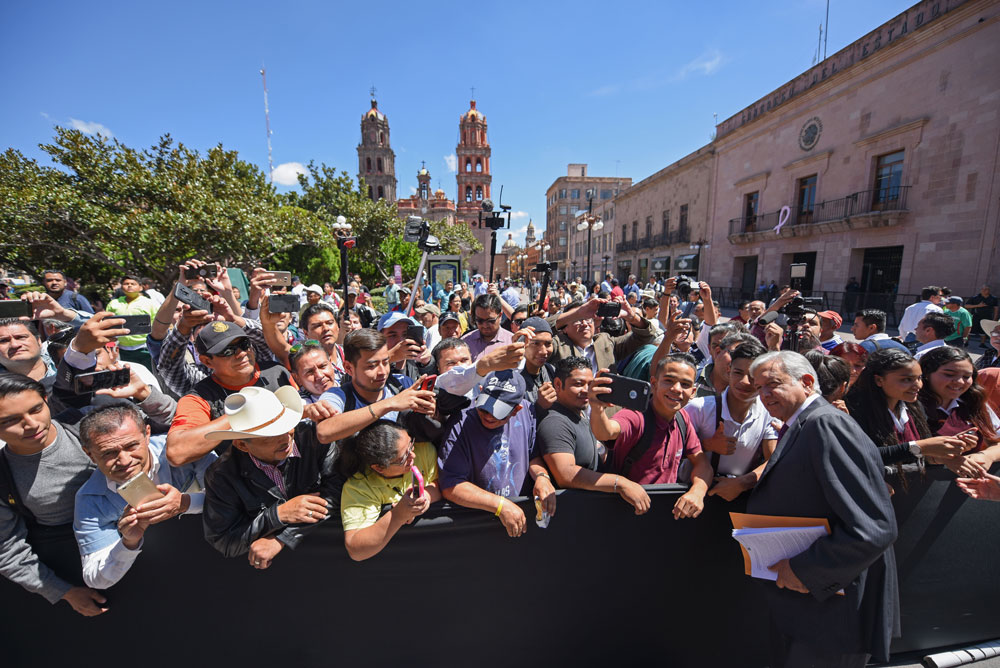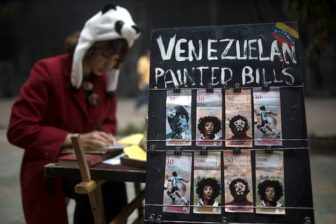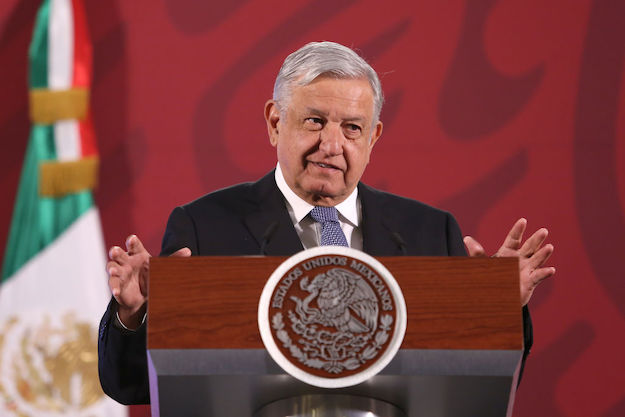Click here to read more of the decade’s 10 biggest stories.
WHO WAS INVOLVED: Andrés Manuel López Obrador (widely known as AMLO), elected president in 2018 after defeats in 2006 and 2012; his predecessor, Enrique Peña Nieto.
WHAT HAPPENED: Many believed AMLO was headed for the political wilderness after his election loss in 2012. But six years of glad-handing potential voters up and down Mexico gave him his groove back. The former Mexico City mayor, running on a promise to tackle corruption, benefitted from Peña Nieto’s graceless response to a string of personal and political scandals. AMLO’s competitors in the 2018 race were similarly unable to convince ordinary Mexicans they cared about their interests, and not just those of the elite. López Obrador won the presidency on July 1, 2018 with 30 million votes, 30 percentage points ahead of his nearest rival.
WHY IT REALLY MATTERED: Thanks to unprecedented public support, a pliable Congress and an opposition sapped of moral authority, López Obrador is as well-placed as any Latin American leader since Lula to deliver a government that sets social and economic inequality — the region’s Achilles’ heel — as its first priority.
AMLO has taken some steps to make Mexico a fairer place — raising the minimum wage and empowering prosecutors to pursue corruption in the judiciary, public unions and the bureaucracy. But these measures have come alongside signs of overreach and concerns that the president is undermining potential checks on his power in the name of fighting graft. While his administration has begun to investigate past crimes like the Ayotzinapa massacre, AMLO’s first year in office was the most violent in Mexico’s history.
López Obrador regularly uses his daily morning press conferences to dismiss critics in the media, civil society and the private sector as “conservatives” or worse. His penchant to govern based on what he believes is right — rather than what is legal, studied or scientific — has led to rash policy decisions on infrastructure, social policy and government spending, and contributed to deep uncertainty over the economy. Investment in equipment and machinery fell almost 13% in the 12 months following his election, and the IMF now predicts Mexico’s economy will grow just 0.4% this year and 1.3% in 2020.
Still, AMLO’s significance lies in more than just numbers. Historian Lorenzo Meyer told AQ that the president’s vision of success would be to leave behind a government that “a majority of Mexicans see as their own.” That millions of people who previously felt left out of public life are beginning to believe they have a stake in the country’s future is an important step forward.
This phenomenon may outlive AMLO’s presidency, in the form of a more politically engaged public with higher expectations of its leaders. But for López Obrador’s promised “transformation” to succeed, he will need to show concrete progress in reducing violence and expanding economic growth and opportunity. That may require an embrace of policymaking based on Mexico as it is today, and not as it was when he first started marching with the opposition.
—
Russell is senior editor and Mexico correspondent for AQ.








